Search
Search Results
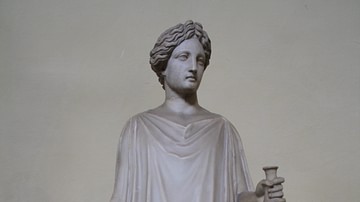
Article
Ancient Greek Clothing
Ancient Greek clothing developed from the Minoan Civilization of Crete (2000-1450 BCE) through the Mycenean Civilization (1700-1100 BCE), Archaic Period (8th century to c. 480 BCE) and is most recognizable from the Classical Period (c. 480-323...
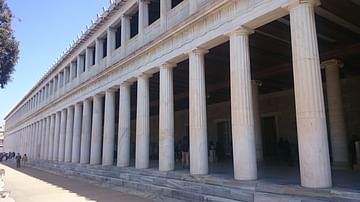
Interview
Interview: American School of Classical Studies at Athens
The American School of Classical Studies in Greece has been running its operations since the 19th century CE, with excavations across the country and an academic program that runs throughout the summer and fall. They are arguably the most...

Video
Dmitri Shostakovich - Waltz No. 2
"Waltz No. 2" by Dmitri Shostakovich, performed by Abbraccio Classical in 2012. "Waltz No. 2" by Dmitri Shostakovich is a classical music piece from his Suite for Variety Orchestra, also known as the Suite for Jazz Orchestra No. 2. While...

Image
The American School of Classical Studies in Athens
Aerial Shot of the American School of Classical Studies in Athens.
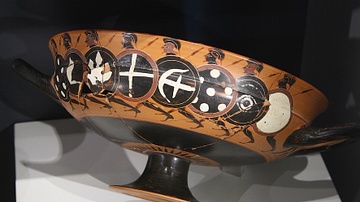
Collection
Warfare in Classical Greece
The ancient Greek city-states were in a constant rivalry for land, resources and power which meant that warfare became an ever-present aspect of life. Athens and Sparta were famous rivals throughout the Classical period but other cities like...
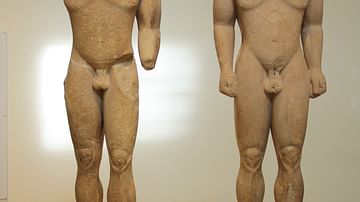
Definition
Greek Archaic Period
The Greek Archaic Period (c. 800-479 BCE) started from what can only be termed uncertainty, and ended with the Persians being ejected from Greece for good after the battles of Plataea and Mykale in 479 BCE. The Archaic Period is preceded...
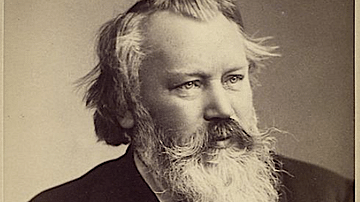
Definition
Johannes Brahms
Johannes Brahms (1833-1897) was a German composer of Romantic music best known for his symphonies, songs, and orchestral, chamber, and piano music. A great student of the history of music, Brahms was convinced that only by working within...
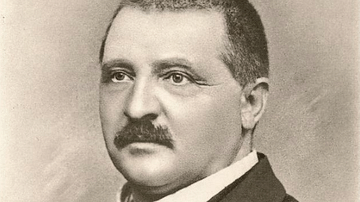
Definition
Anton Bruckner
Anton Bruckner (1824-1896) was an Austrian composer, most famous for his nine grand symphonies and his church music. Never quite gaining full recognition for his work until he was in his sixties, Bruckner's music, with its strong spiritual...

Definition
Joseph Haydn
Joseph Haydn (1732-1809) was an Austrian composer of Classical music who is widely regarded as one of the greatest composers in history. Haydn spent most of his career around Vienna, where he pioneered the symphony and string quartet format...
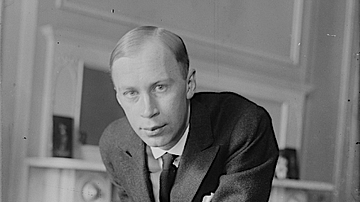
Definition
Sergei Prokofiev
Sergei Prokofiev (1891-1953) was a Russian composer (born in Ukraine) who was at the forefront of the Modernist music movement. His symphonies, orchestral suites, and ballets display endless variety and complexity. His most famous works today...